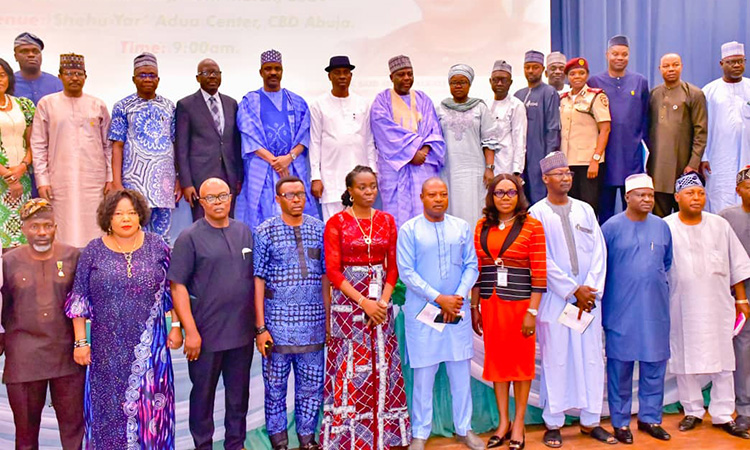Nigeria’s Minister of Transportation proposes policy to address sector challenges
- Like
- Digg
- Del
- Tumblr
- VKontakte
- Buffer
- Love This
- Odnoklassniki
- Meneame
- Blogger
- Amazon
- Yahoo Mail
- Gmail
- AOL
- Newsvine
- HackerNews
- Evernote
- MySpace
- Mail.ru
- Viadeo
- Line
- Comments
- Yummly
- SMS
- Viber
- Telegram
- Subscribe
- Skype
- Facebook Messenger
- Kakao
- LiveJournal
- Yammer
- Edgar
- Fintel
- Mix
- Instapaper
- Copy Link
Posted: 27 March 2024 | Intelligent Transport | No comments yet
The National Land Transport Policy draft aims to tackle current challenges and promote sustainable growth in Nigeria’s transportation sector, offering potential benefits like reducing congestion and enhancing urban and rural connectivity.


Credit: Federal Ministry of Transportation
Nigeria’s Minister of Transportation, Sen. Said Alkali, has put forth plans for the creation of a National Land Transport Policy (NLTP), marking a potential turning point for Nigeria’s land transport sub-sector. Speaking at a stakeholders validation forum, Sen. Alkali stressed the importance of this policy initiative, citing current shortcomings within the land transport system as a primary motivation.
The forum, attended by a diverse range of stakeholders including operators, regulators, academia and research institutes, aimed to scrutinise and validate the draft NLTP document. Sen. Alkali emphasised the urgent need for such a policy, recognising the challenges currently faced by the land transport sector.
Acknowledging the critical role of land transportation in facilitating social, regional, national and international connectivity, Sen. Alkali outlined the overarching objectives of the NLTP, highlighting its potential to foster sustainable growth across various sectors including agriculture, commerce, tourism, industry, education and the blue economy.
Tokyo’s Toei Subway introduces multilingual communication system to enhance accessibility
Ahead of the validation exercise, stakeholders expressed optimism regarding the inclusivity and comprehensiveness of the NLTP draft. They believed that by harnessing diverse perspectives and expertise, the policy could effectively address the multifaceted challenges confronting Nigeria’s land transportation system. Stakeholders anticipated potential benefits such as congestion reduction, improved urban and rural connectivity, as well as the establishment of a more sustainable transport network.
The draft NLTP provides a holistic overview of Nigeria’s land transportation infrastructure, encompassing rail, road and pipeline networks, as well as their intermodal connections with inland waterways, seaports and airports. It presents strategic responses to key issues such as climate change, capacity building, inclusivity and implementation strategies aimed at optimising interactions between various transport modes.
With optimism for the potential impact of the policy, stakeholders anticipate a constructive journey towards addressing the challenges within Nigeria’s land transportation sector, guided by a visionary policy framework poised to shape the nation’s transportation landscape.
Related modes
Bus & Coach, Rail
Related countries
Nigeria
Related organisations
Federal Ministry of Transportation, Federal Ministry of Transportation/ Marine & Blue Economy
Related people
Said Alkali








